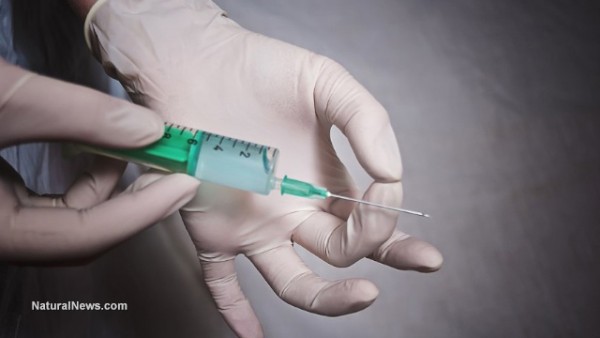
Advertisement
A recent national survey including almost 600 doctors claims that most physicians don’t urge the HPV vaccine on pre-teens, even though more than 80 percent of pediatricians frequently discuss it with their patients.
The HPV vaccine, Gardasil, was licensed in 2006. It was manufactured to protect against only four of the more than 100 different human papillomavirus strains, which are spread by sex and can cause several types of cancer, including cervical cancer. The government wants girls and boys to get the vaccine before they are sexually active, around the ages of 11 and 12.(1,3)
The authors, headed by University of Colorado researcher Dr. Allison Kempe, surveyed 582 pediatricians and family physicians by mail or online nearly two years ago. The doctors were part of a nationwide network, which had participated in similar surveys in the past. The study was published Monday in the journal Pediatrics.(1)
The objectives of the study were to describe self-reported practices about recommending the HPV vaccine, estimate the parental deferral of HPV vaccination and highlight characteristics associated with not discussing it.(2)
False reports give impression doctors aren’t pushing HPV vaccine on pre-teens
AP headlines and articles about the study have been misleading, claiming most doctors don’t urge pre-teens to get the HPV vaccine. In actuality, the results of the study revealed that approximately 84 percent of pediatricians frequently, if not always, discuss the HPV vaccination with patients 11 to 12 years of age.(2)

That means only 18 percent of pediatricians rarely, if not never, discussed the HPV vaccine with their patients. Furthermore, among that group, patients were 3.4 times more likely to be concerned about the long-term effectiveness of the shot.(2)
This skepticism is well-founded. Gardasil, for instance, is touted as being 100 percent effective. However, this is a chicanery tactic peddled by the medical industry. Gardasil is only effective in combating two strains of cancer-causing HPV, but researchers have discovered at least 15 cancer-causing HPV strains!(3)
Gardasil will not thwart infections from HPV types that are not in the vaccine. During clinical trials, hundreds of women who received Gardasil still ended up contracting the HPV virus. Furthermore, makers of the drug caution women that “vaccination does not substitute for routine cervical cancer screening.”(3)
Pediatricians boast the benefits of vaccine without emphasizing the risks
But don’t expect these precautionary measures to be emphasized by your doctor. Given that more 82 percent of pediatricians frequently pushed the HPV vaccine in the survey, it’s highly unlikely that they noted all the risks. Those doctors that rarely discussed vaccines with their patients were more likely to be family physicians. They were 2 to 8 times more likely to claim that parents “refused” the vaccine in order to give the impression that they were respecting the parents’ wishes.(2)
In short: don’t buy into the claim that most doctors aren’t pushing vaccines on patients, both young and old. A national survey last year found that 60 percent of adolescent girls and 42 percent of boys received the HPV vaccine once. Three doses are recommend by doctors, despite the vaccine’s overall ineffectiveness.(1)
Sources include:
(1) KCenTV.com
(2) Pediatrics.AAPPublications.org
(3) NaturalNews.com
Submit a correction >>
This article may contain statements that reflect the opinion of the author
Advertisement
Advertisements















